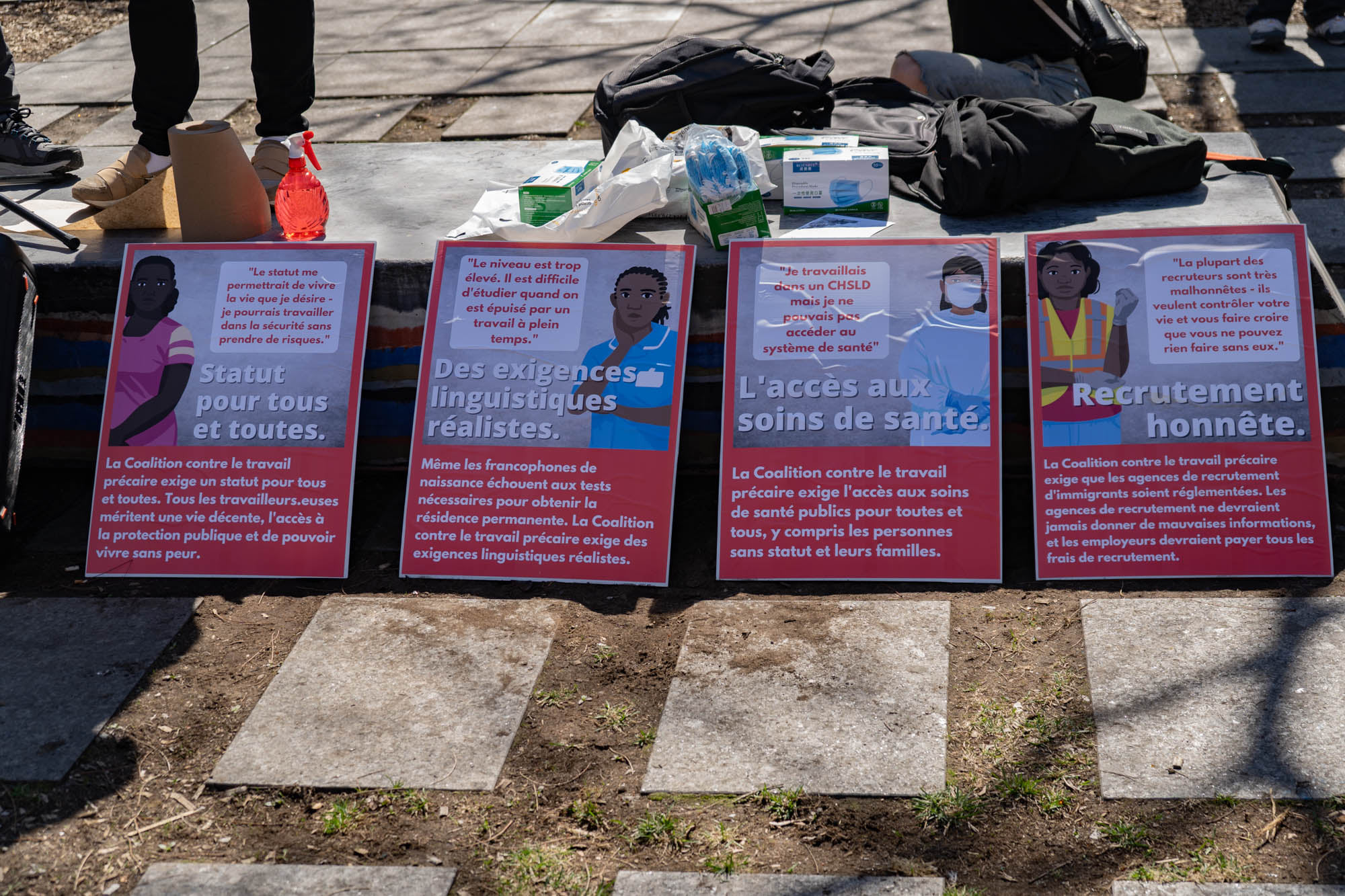Threats of deportation, low wages, no fixed work schedule, these are the experiences of migrant workers in a private seniors’ residence in Levis, Villa Mon Domaine, and they illustrate the exploitation experienced by caregivers employed through the Canadian government’s Temporary Foreign Worker Program (TFWP). Some of them expressed their demands at a press conference organized by the Center for Immigrant Workers (CTI), in particular the end of closed work permits that bind workers to a single employer, to a single workplace and that place constraints on the duration of their employment (1 to 2 years).
Francois (a pseudonym) was recruited as a seniors’ caregiver through the TFWP. “We were trained on site [at Villa Mon Domaine] for 2 days and after 2 days we were put directly on the floor. We were told we were volunteering with reassurance that our work permits were on the way. I remained as a volunteer for 10 months.” He and his co-workers were forced by the owners of the residence to care for about 60 semi-autonomous or non-autonomous elderly residents in miserable working conditions, under threat of deportation. They lived in closet-sized rooms with $100 gift cards every two weeks to support themselves.
“There was outrage in the case of Villa Mon Domaine, and that’s fine because yes, it was unacceptable,” says Raphael Laflamme, a community organizer at CTI. “But if you look at the facts, this is just one of many cases. It’s the result of a system that creates the conditions for something like this to happen.”
Louise Boivin, a professor at the Université du Québec en Outaouais, is doing research on the employment conditions of caregivers employed through the Temporary Foreign Worker Program. She points out the excessive power granted by the government to bosses under closed permits. “The cases […] that I have documented show serious human rights violations akin to a form of semi-slavery.”
Ramatoulaye Diallo, treasurer of the CSN’s Montreal Central Council, added: “It’s a scandal, I’m outraged […] it’s not semi-slavery, it’s outright slavery.” The CSN passed a resolution on April 6 to issue open work permits to migrant workers.
The number of work permits issued to workers in Canada through the TFWP jumped from 15 in 2019 to 170 in 2020, rising to 380 in 2021. Faced with a labour shortage, the government’s objective is apparently to continue increasing the number of these workers. Audrey (a pseudonym), a participant in the TFWP, calls for the regularization of foreign workers. “We’re talking about people who come here to contribute to society and who want to stay. Why not give them permanent residency instead of permits that have to be renewed every two years?” she asked.


Be part of the conversation!
Only subscribers can comment. Subscribe to The North Star to join the conversation under our articles with our journalists and fellow community members. If you’re already subscribed, log in.